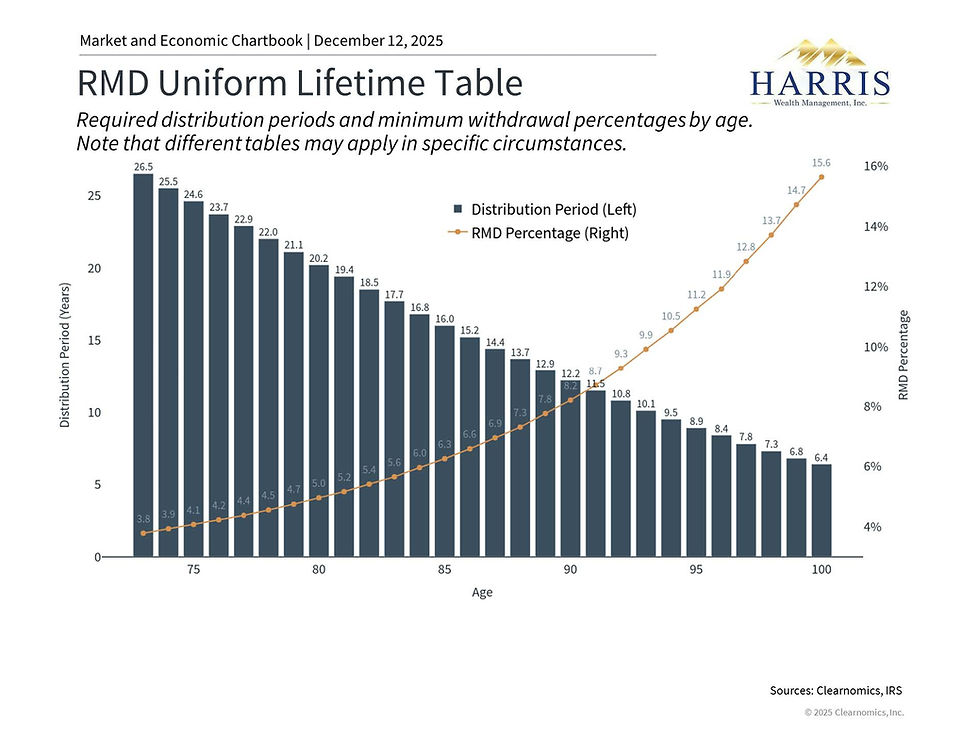April 2025 Market Review: Weathering Historic Volatility
- Chris Harris, FMVA

- May 1, 2025
- 2 min read
The markets experienced extraordinary volatility in April as investors processed new tariff announcements. Despite the S&P 500 experiencing a dramatic 12% decline during the month, it ultimately recovered to close within one percent of its starting point. Economic data revealed a slight contraction in the first quarter economy as businesses built up inventories of imported goods ahead of anticipated tariffs. While both bonds and international stocks experienced significant fluctuations, they delivered positive contributions to diversified investment portfolios. This serves as another powerful demonstration that maintaining diversification and staying invested during periods of uncertainty remains crucial.
Why staying invested matters after a turbulent month
April reinforced the value of preparation for market uncertainty. The month began when the White House unveiled its April 2 tariff announcement affecting nearly all trading partners. These tariffs exceeded investor expectations, triggering concerns about potential inflation increases, global economic deceleration, and trade conflicts. Stock markets responded with the most severe declines witnessed since the pandemic.
Market volatility surged in April
Markets rebounded after the administration announced a 90-day implementation pause for most countries just days following the initial announcement. Further exemptions on tariffs with China, particularly regarding technology products, provided additional reassurance to investors.
Despite significant market fluctuations throughout April, major indices closed with relatively minor changes. Diversified portfolios benefited from positive bond returns and strengthening international stocks. While the S&P 500 has declined approximately 4.9% for the year including dividends, many balanced portfolios are performing close to breakeven.
First quarter saw GDP contraction

A primary investor concern is whether tariffs will accelerate inflation while hampering growth. Recent economic data shows a slight contraction in the economy during the first quarter, with GDP declining 0.3%, marking the first contraction since early 2022. This decline is attributed almost exclusively to trade factors, as businesses expedited imports to build inventory reserves. Consumer spending slowed but remained in positive territory. It's worth noting that these figures represent preliminary GDP estimates and are subject to revision.
Historical benefits of maintaining market exposure
Despite recent challenges, one investment principle remains evident: historically, maintaining market exposure through volatile periods has been a crucial component of long-term financial success. Since positive and negative trading days often occur unpredictably, exiting the market following downturns, even briefly, can prove detrimental. Today's market and economic environment may increase the temptation to time the market.
Please feel free to reach out with any questions or concerns. Thank you for your continued trust in me as your Advisor.




Comments